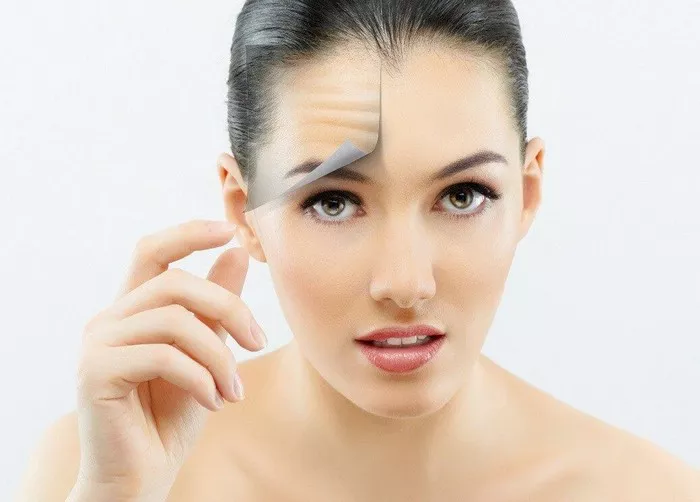The quest for youthful, radiant skin has driven individuals to explore various factors that can contribute to the development of wrinkles. While factors like sun exposure, genetics, and lifestyle choices play a significant role in skin aging, the impact of sleep on the skin is a topic that has garnered considerable attention. In this article, we will delve into the connection between lack of sleep and wrinkles, examining the scientific evidence, causes, and ways to mitigate potential skin damage.
Understanding the Basics of Wrinkles
Before we explore the relationship between sleep and wrinkles, it’s important to understand the basics of what causes wrinkles to form in the first place.
Wrinkles are creases or lines that develop on the skin’s surface as a natural part of the aging process. They can also be influenced by various environmental and lifestyle factors, including:
Aging: As we age, our skin loses collagen and elastin, proteins responsible for its firmness and elasticity. This natural loss of structural support can lead to the formation of wrinkles.
Sun Exposure: UV radiation from the sun can accelerate the breakdown of collagen and elastin fibers in the skin, leading to premature wrinkles and skin aging.
Smoking: Smoking is known to produce harmful free radicals that can damage collagen and elastin fibers, contributing to wrinkle formation.
Diet: A diet lacking in essential nutrients and antioxidants may deprive the skin of the tools it needs to repair and maintain its youthful appearance.
Now, let’s explore whether lack of sleep can also be added to this list of factors that contribute to wrinkles.
The Link Between Lack of Sleep and Wrinkles
Emerging scientific research suggests that inadequate or poor-quality sleep may indeed contribute to the development of wrinkles. Several mechanisms explain this connection:
Collagen Production: Sleep plays a crucial role in collagen production, a protein vital for maintaining the skin’s elasticity and suppleness. During deep sleep stages, the body repairs and regenerates tissues, including the skin. Chronic sleep deprivation may hinder this process, leading to reduced collagen production and, subsequently, the formation of wrinkles.
Increased Inflammation: Lack of sleep can lead to elevated levels of inflammation in the body. Chronic inflammation is a known contributor to skin aging, as it can break down collagen and elastin fibers and promote the formation of wrinkles.
Hormonal Imbalance: Sleep deprivation can disrupt the balance of various hormones in the body, including cortisol. Elevated cortisol levels are associated with increased skin aging, collagen degradation, and the appearance of wrinkles.
Impaired Skin Barrier Function: Sleep plays a role in maintaining the skin’s barrier function, which is essential for protecting against environmental stressors. Inadequate sleep may compromise this barrier, making the skin more susceptible to damage from UV rays, pollution, and other external factors that contribute to wrinkles.
Poor Circulation: Lack of sleep can reduce blood flow to the skin, depriving it of essential nutrients and oxygen. This can hinder the skin’s ability to repair and regenerate, potentially accelerating the aging process.
Factors Contributing to Wrinkles Due to Lack of Sleep
Several lifestyle and environmental factors can exacerbate the impact of sleep deprivation on the skin:
Sleep Position: Sleeping with your face pressed against a pillow can create sleep lines, which, over time, can develop into permanent wrinkles. Silk or satin pillowcases may help reduce friction on the skin.
Dehydration: Lack of sleep can lead to dehydration, which can make wrinkles more noticeable. Staying well-hydrated is essential for maintaining skin elasticity.
Stress: Chronic stress, often linked to sleep problems, can release stress hormones that contribute to the breakdown of collagen and the formation of wrinkles.
Poor Skincare Habits: Neglecting proper skincare routines, including cleansing and moisturizing before bedtime, can exacerbate the effects of sleep deprivation on the skin.
Mitigating the Impact of Lack of Sleep on Wrinkles
While the connection between lack of sleep and wrinkles is becoming increasingly evident, there are steps you can take to mitigate the potential skin damage:
Prioritize Quality Sleep: Aim for 7-9 hours of quality sleep each night. Establish a consistent sleep schedule and create a relaxing bedtime routine to improve sleep quality.
Sleep Position: Try to sleep on your back to minimize pressure on your face and reduce the risk of sleep lines.
Stay Hydrated: Drink an adequate amount of water throughout the day to maintain skin hydration.
Manage Stress: Practice stress-reduction techniques such as meditation, deep breathing exercises, or yoga to lower cortisol levels and reduce the impact of stress on your skin.
Healthy Diet: Consume a balanced diet rich in antioxidants, vitamins, and minerals that support skin health. Foods like fruits, vegetables, and fish can provide essential nutrients.
Skincare Routine: Establish a consistent skincare routine that includes cleansing, moisturizing, and protecting your skin from UV damage with sunscreen.
Consult a Dermatologist: If you are concerned about wrinkles or other skin aging signs, consider consulting a dermatologist. They can recommend personalized skincare treatments, such as retinoids or topical antioxidants, to help address your concerns.
Conclusion
While wrinkles are a natural part of the aging process, emerging research suggests that lack of sleep can contribute to their formation. Inadequate sleep can impact collagen production, increase inflammation, disrupt hormonal balance, and compromise the skin’s barrier function. To maintain youthful and healthy skin, it’s crucial to prioritize quality sleep, manage stress, and adopt a skincare routine that supports skin health. Additionally, consulting with a dermatologist can provide personalized guidance on addressing wrinkles and other skin aging concerns.


